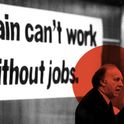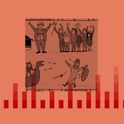It’s been five years since the last successful terrorist attack in Britain killed 52 people on the London transport system.
Mohamed Sidique Khan, the bombers’ leader, was also a softly spoken youth worker and father. Shiv Malik spent months in Khan’s neighbourhood to investigate his background, eventually stumbling upon his brother, who told him the troubling and somewhat surreal story of Khan's radicalisation.
After the bombings, Aatish Taseer published an interview with Hassan Butt, a 25 year-old Muslim who was a self-confessed recruiter for the jihad in Afghanistan. He found “cold hatred for Britain,” but also met "many with Butt's makings: small, rootless lives, seeking bigger things.”
The subsequent 21st July attack, the Glasgow airport incident and the West End car bombs all fizzled out without victims. The recruiters, though, are still working. Umar Abdulmutallab, the "Christmas day bomber" came into contact with at least one hardline imam through the UCL Islamic society. "Mainstream, liberal campus society," writes Shiv Malik, "does not have the tools to defeat arguments like [the imam's]: many radical preachers are comfortable with leftist arguments about imperialism and racism and respond in kind to rational attacks on their beliefs from non-believers."
Following the 7/7 attacks—and the failed follow-up two weeks later—Ehsan Masood gave a comprehensive account of the forces shaping Muslim youth in Britain, hopeful that some of the extreme voices could be brought into mainstream discussion. 9/11, and later 7/7, catalysed the making of laws that illegalised religious hate speech and allowed suspects to be detained without charge. Conor Gearty tackled the implications for civil liberties, in view of the shooting of Jean Charles de Menezes and the botched Forest Gate raid.
Looking back a year later, Rushanara Ali said the attacks had not marked a turning point for British Muslims because two civilizations were not at war with one another—at least not on anything like the scale that some had feared.
7/7: looking back
July 07, 2010












